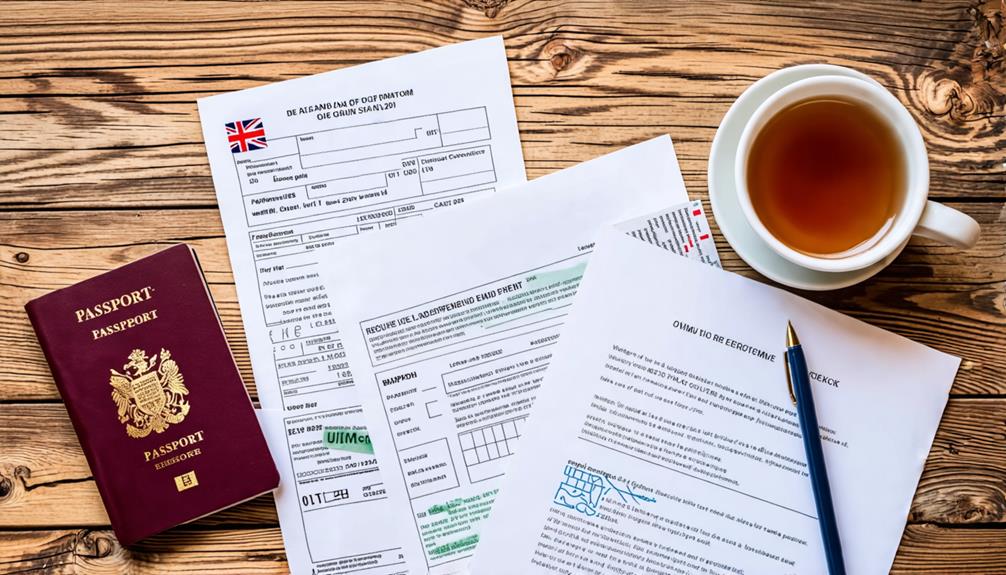BPSS (Baseline Personnel Security Standard) clearance plays a significant role in the UK to protect national interests and uphold the integrity of confidential roles within government and associated sectors.
It offers a thorough check of an individual's identity, employment history, and criminal records, thus affirming their trustworthiness and lawfulness to work.
BPSS is mandatory for civil servants, contractors, temporary staff, and those using the Public Services Network.
It serves as a foundational step for obtaining higher security clearances like SC or DV, reducing threats related to identity deception and unauthorized access.
More information on the process and its consequences are accessible for a deeper understanding.
Understanding BPSS Clearance
Understanding BPSS Clearance involves recognizing its function in assuring the security and integrity of individuals who access UK government assets.
The Baseline Personnel Security Standard (BPSS) acts as a primary measure, safeguarding national interests by confirming vital aspects of an individual's background. This process includes thorough checks on a person's identity, unspent criminal records, and employment history for the past three years. It also necessitates the disclosure of significant periods spent abroad to mitigate risks associated with sensitive information.
Although BPSS is not a formal security clearance, it supports the wider national security vetting process, acting as a required starting point for many roles within the civil service, armed forces, and among government contractors. The main objective of BPSS is to ensure that individuals are trustworthy, honest, and of high integrity, thereby defending national security against possible threats and misuse of sensitive information.
In addition, BPSS checks are compulsory for accessing the Public Services Network (PSN) and for roles that may expose individuals to SECRET and TOP SECRET information. This highlights its significant role in the recruitment and vetting processes for positions dealing with sensitive government data, providing a secure and reliable workforce.
Who Needs BPSS
The importance of BPSS in the broader security vetting process necessitates a clear understanding of who requires this clearance. A key group that needs BPSS clearance includes individuals working in government departments. This includes civil servants, armed forces members, and contractors who require access to government assets. They need BPSS clearance to confirm their trustworthiness and integrity in handling sensitive information as part of their pre-employment vetting process.
Temporary staff in government roles also need to pass BPSS checks to maintain the security integrity within government functions. This vetting process is not merely crucial for those in service but also acts as a stepping stone for individuals applying for higher levels of security clearance, like Security Check (SC) or Developed Vetting (DV). BPSS is a cornerstone of the national security vetting system.
Moreover, individuals in roles that might need access to the Public Services Network (PSN) should complete BPSS clearance. This step aids in reducing the potential risks related to identity fraud and illegal work, thus creating a secure and reliable working environment within the UK government and related entities.
Access Granted by BPSS
BPSS clearance provides individuals with the ability to access UK OFFICIAL assets and, in certain scenarios, occasional access to UK SECRET assets. This access level enables them to carry out roles that involve handling sensitive government information, making it a critical requirement for those working in government sectors or projects that demand secure management of classified data.
The clearance acts as the basic vetting required for obtaining more advanced clearances, thereby allowing individuals to function in environments where protection of sensitive data is necessary. It is also a prerequisite for various roles, contributing to the protection of national security and operational integrity.
- Access to Public Services Network (PSN): Individuals working within the PSN require BPSS clearance to ensure their duties are performed securely and effectively.
- Prerequisite for Civil Servants and Armed Forces: This clearance is necessary for civil servants, members of the armed forces, and contractors who handle sensitive government data.
- Risk Mitigation: BPSS clearance reduces risks associated with hiring personnel without vetting by ensuring thorough background checks are carried out.
- Foundation for Higher Clearances: BPSS is an initial step towards obtaining formal security clearances, allowing access to certain SECRET and TOP SECRET areas.
Validity of BPSS Clearance
The BPSS clearance for UK citizens remains valid without an end date, provided they continue in their role that requires such clearance. This unending validation ensures that employees do not need to undergo repeated checks, as long as they stay in their current roles.
If an individual leaves a role and returns within a year, their BPSS clearance still holds, eliminating the requirement for re-verification.
However, when individuals switch jobs, it is generally suggested that the new employer conduct BPSS checks again. This measure helps comply with legal requirements and upholds the security protocols' integrity. Although some employers might accept current clearances, re-screening provides confirmation that the vetting process is thorough and current.
Organizations should implement proper vetting processes to reduce risks related to unauthorized access to sensitive data. Frequent re-screening, while not obligatory, is encouraged to provide continuous assurance of an individual's appropriateness for their role.
This practice contributes to maintaining high security standards and trust within the organization, ensuring that only eligible and vetted individuals can access sensitive data.
Components of BPSS Checks
In the UK, the BPSS checks are made up of four important components that aim to ascertain the suitability and trustworthiness of individuals who need access to sensitive information. These components form a solid framework to ensure that only those who meet the necessary qualifications and trustworthiness are granted clearance.
- Right to Work Verification: This component verifies the nationality and immigration status of the individual, confirming their legal right to work in the UK.
- Identity Verification: This involves comprehensive checks on numerous ID data, such as name, address, aliases, and accounts, to verify the identity of the individual.
- Criminal Records Check: This check, limited to unspent convictions, verifies that the individual does not possess a criminal history that could affect their suitability for the role.
- Employment History Review: This part involves the confirmation of the individual's employment or activity for the past three years, checking their stability and reliability.
Collectively, these components form an extensive vetting process, confirming that individuals who have access to sensitive information meet the necessary standards of integrity and reliability.
Applying for BPSS Clearance
For BPSS clearance, employers are required to apply on behalf of their future employees. This application includes essential elements like identity evidence and comprehensive employment history from the past three years.
The procedure also includes the verification of the person's eligibility to work in the UK and checks for any unspent criminal records.
Comprehending the exact documentation and steps involved is key for an efficient and prompt clearance.
Required Documents Overview
Obtaining BPSS clearance requires the submission of several key documents to confirm identity, employment history, criminal record, and immigration status. This rigorous verification process ensures that only qualified individuals are granted access to sensitive roles.
Here is a summary of the required documents:
- Proof of Identity: A mandatory ID Data check is carried out to authenticate the applicant's name, address, and any aliases or links to other accounts.
- Employment History: Applicants need to present a comprehensive record of their employment for the past three years. This should include any significant periods spent abroad (six months or more).
- Criminal Record Check: A Basic Disclosure check is performed to identify any unspent convictions, affirming the applicant's suitability for the role.
- Nationality and Immigration Status: Documentation verifying the applicant's nationality and right to work in the UK is required to confirm their legal status.
Application Process Steps
To successfully complete the BPSS clearance application process, one must first understand that the process begins with the employer. It is the responsibility of the employer to initiate the application through the eScreening portal, making sure all required information is collected and verified.
There are four main components in the BPSS check: validation of the right to work in the UK, verification of identity, a criminal records check for any unspent convictions, and a review of the individual's employment history over the last three years.
Applicants should be ready to disclose any significant time spent abroad, specifically six months or more within the last three years, as it may require additional international criminal record checks.
Once the application information is finalized, it is securely forwarded to the applicant, who then presents it to potential employers.
The standard time for UK-based BPSS checks is usually between 3-5 days. However, this time frame can change based on the complexity of the applicant's work history and the need for additional international checks.
The accuracy and completeness of the provided information is critical for a smooth and effective clearance process.
Conclusion
BPSS clearance in the UK is important for ensuring the reliability and security of persons who are privy to sensitive government data and resources.
This clearance helps reduce potential risks by confirming individuals' identities, history, and any criminal records. Those working in roles that deal with sensitive data or matters of national security must obtain this clearance.
The clearance process includes a comprehensive review of personal details, employment history, and security checks.
Compliance with the BPSS framework is key to maintaining national security and organizational integrity.



